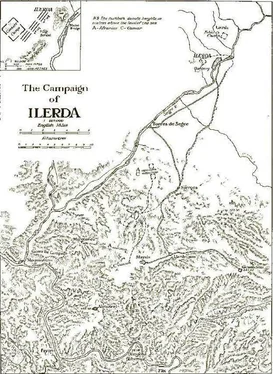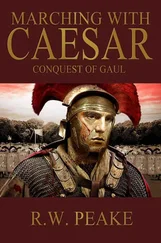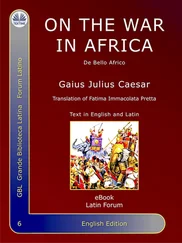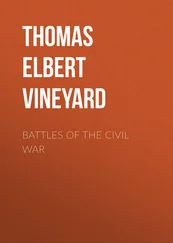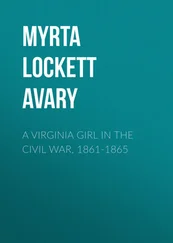R. Peake - Marching With Caesar – Civil War
Здесь есть возможность читать онлайн «R. Peake - Marching With Caesar – Civil War» весь текст электронной книги совершенно бесплатно (целиком полную версию без сокращений). В некоторых случаях можно слушать аудио, скачать через торрент в формате fb2 и присутствует краткое содержание. Жанр: Исторические приключения, на английском языке. Описание произведения, (предисловие) а так же отзывы посетителей доступны на портале библиотеки ЛибКат.
- Название:Marching With Caesar – Civil War
- Автор:
- Жанр:
- Год:неизвестен
- ISBN:нет данных
- Рейтинг книги:5 / 5. Голосов: 1
-
Избранное:Добавить в избранное
- Отзывы:
-
Ваша оценка:
- 100
- 1
- 2
- 3
- 4
- 5
Marching With Caesar – Civil War: краткое содержание, описание и аннотация
Предлагаем к чтению аннотацию, описание, краткое содержание или предисловие (зависит от того, что написал сам автор книги «Marching With Caesar – Civil War»). Если вы не нашли необходимую информацию о книге — напишите в комментариях, мы постараемся отыскать её.
Marching With Caesar – Civil War — читать онлайн бесплатно полную книгу (весь текст) целиком
Ниже представлен текст книги, разбитый по страницам. Система сохранения места последней прочитанной страницы, позволяет с удобством читать онлайн бесплатно книгу «Marching With Caesar – Civil War», без необходимости каждый раз заново искать на чём Вы остановились. Поставьте закладку, и сможете в любой момент перейти на страницу, на которой закончили чтение.
Интервал:
Закладка:
A relief column from Gaul was heading our way; a huge column fully two miles long, with a force of archers, cavalry, and, most importantly, wagons of grain and other supplies. Unfortunately for us, it was a Gallic column, meaning that it was not so much led as it was herded along, with no one man in charge. In other words, it was the normal Gallic chaos rolling at its own leisurely pace, covering barely ten miles a day, on a good day. There is no way to hide such a large number of wagons under the best of circumstances, and it was not long before Afranius learned of the convoy. Late one night, he sent a force of cavalry and three of his Legions across the stone bridge to intercept the wagons. By all logic, the train should have been ripe for the plucking, even with the force of archers and cavalry, but somehow, the Gauls managed to survive more or less intact, with the loss of a handful of cavalry who sacrificed themselves to allow the convoy to withdraw to a hill and take up defensive positions. It was a victory for us, but it was hollow. While the supply train survived, it was still unable to reach us because of the state of the river, keeping any work on reconstruction of the bridges from happening. All in all, we were in a tight spot, and as we were to learn later, both Afranius and Petreius were not shy about letting Rome know that they had Caesar ready for the death blow, that it was just a matter of time. Because of the repulse of our assault on the mound and our supply problems, couriers were issued almost every day from the Pompeian camp, hurrying to Rome with what were undoubtedly highly exaggerated claims of our woes. I will not deny that we were in serious trouble; the problem for the Pompeians was that we had been in trouble before and despite our hunger, we had every confidence in Caesar, and before long, that confidence was justified.
During our time in Britannia, we saw many new and different things. One of those things that we saw on that accursed island, Caesar put to use here. I know not what they are called by the Britons, but they are small, round boats made of hide stretched over a wicker frame. They are extremely light but sturdy craft and are easy to steer. Most importantly, they are easy to make and transport, and these boats proved to be our salvation, thanks to Caesar’s ingenuity and willingness to try new things. He ordered a number of these craft built, then using double wagons and under the cover of night, marched out with five Cohorts of the 10th, including mine, making a hard march to the north, slipping past the town and Afranius’ camp undetected. We moved to a spot almost 20 miles upriver, finally stopping where the river was narrow enough and would provide a suitable site for a bridge. Unloading the boats, we paddled across, taking position on a small hill overlooking the riverbank, with a good command of the surrounding terrain. Immediately, the rest of the 10th was sent for, along with the 7th, and within two days we had built a new bridge across the river. Word was sent to the Gallic column, and they crossed the bridge. Under escort, they made it to our camp. With this stroke, our supply situation was now solved.
Now that we had regained both sides of the river, Afranius’ foragers were in jeopardy. A party of them was captured by our cavalry, and in Afranius’ attempt to liberate them, he suffered a sharp defeat, losing a full Cohort of men in the process. Just as quickly as the gods turned their faces from us, they now returned their favor to Caesar. It was almost dizzying how quickly things turned around. Somewhere in this time period, Caesar also received word that Decimus Brutus had succeeded in defeating the combined fleet of Massilia and the personal fleet of Domitius Ahenobarbus. It was clear to all, especially the natives, that Caesar’s fortune was restored, thereby making it even more difficult for Afranius to obtain supplies, with all five tribes in the region reaching an agreement with Caesar to supply only us. After the capture of the foraging party, it was almost impossible for Afranius to find volunteers for that duty, and soon men were being turned out of the camp gates at the point of a sword to go forage. Naturally, their hearts were not in it, most of them immediately deserting to us, never returning to Afranius. Still, all was not perfect with our lot. In order to keep the pressure up on Afranius’ foragers, Caesar was forced to run the cavalry ragged; the fact that they had to travel 20 miles to the bridge was a hardship on the men and the horses. To remedy this, Caesar contrived to engineer a crossing of the river by creating an artificial ford at a spot about a mile and a half up the river from the stone bridge. Since Afranius was unable to stop us, he and Petreius realized that their position was now untenable, because the creation of that ford would effectively shut off all foraging attempts by the Pompeians, whose own supply situation had become dire. This move by Caesar convinced them that it was time to shift operations, and accordingly they chose the region south of the Iber River.
It took some time to create the ford; a series of channels had to be cut that diverted the flow of the Sicoris, lowering its normal level in order to allow both horses and men to cross without fear of drowning. While Caesar was working, Afranius sent word to the natives south of the Iber to make ready to receive the Pompeian army. Unlike the region we were in now, the natives south of the Iber were still firmly in the Pompeian camp, and it was this support that Afranius counted on to help prepare the way. He ordered the native tribes to gather a number of small boats at a point on the Iber where they would be strung together to make a bridge for his army to cross. Although the area was friendly to Pompey, such an endeavor was not going to go unnoticed by our scouts. Once the location of the boat bridge was identified, it was a simple matter of plotting Afranius’ line of march from Ilerda to the bridge. Knowing where the enemy is going is always a huge advantage in warfare, and this occasion was no exception. To prepare for the evacuation, Afranius sent two of his Legions across the stone bridge, where they built a fortified camp. It became a race; Caesar doubled the workforce on the ford, but after a day, it was still just barely suitable for horses to cross and still too risky for the Legions. It would take us too long to march to the bridge upriver, because by that time, Afranius’ evacuation would be complete. Attacking the enemy when they tried to cross the stone bridge was out of the question due to the position of the two Legions already dug in on the eastern bank. Deciding that what was created at the ford would have to suffice, Caesar ordered his cavalry across the river even as Afranius’ men marched across the bridge, forming up in marching order to begin their trek south.
We stood on the ramparts watching our cavalry dart in and out, looking for vulnerable spots in the enemy’s formation. Despite their best efforts, the Afranius column began marching, although they left a string of bodies behind as they moved slowly across the level plain by the river. It looked very much like the Pompeians would escape and that the fighting would continue.
I am not sure who started it, but I became aware of a buzz of conversation that was different from the normal background noise of chatter that is typical of the Legions when they are standing idle like we were in the camp. One’s ear becomes attuned to these minute changes, especially as a Centurion or Optio, because more often than not it spells trouble. Turning from watching our cavalry, I saw that a large number of men had clustered together and were engaged in an animated debate of some kind. I looked around for one of my Centurions, but since Celer was the only one nearby and I did not trust him, I decided to go see what the commotion was on my own. Before I could descend the parapet, three of the men left the group and headed in the direction of the Primus Pilus, who was standing farther down the parapet. Wanting to hear, I changed direction and walked to join the Primus Pilus, arriving at the same time as the delegation.
Читать дальшеИнтервал:
Закладка:
Похожие книги на «Marching With Caesar – Civil War»
Представляем Вашему вниманию похожие книги на «Marching With Caesar – Civil War» списком для выбора. Мы отобрали схожую по названию и смыслу литературу в надежде предоставить читателям больше вариантов отыскать новые, интересные, ещё непрочитанные произведения.
Обсуждение, отзывы о книге «Marching With Caesar – Civil War» и просто собственные мнения читателей. Оставьте ваши комментарии, напишите, что Вы думаете о произведении, его смысле или главных героях. Укажите что конкретно понравилось, а что нет, и почему Вы так считаете.
